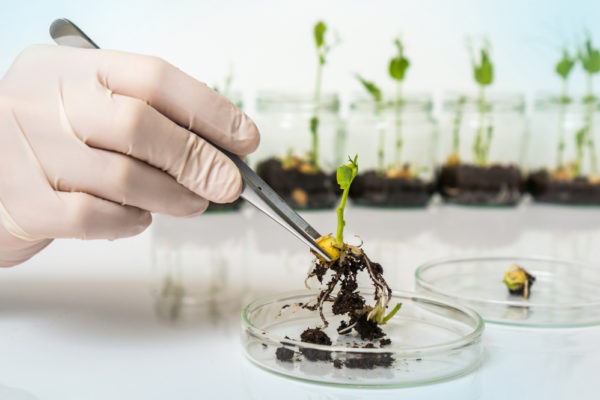The people who hold the most extreme views opposing genetically modified foods think they know most about GMO food science, but actually know the least, according to new research.
The paper, published Jan. 14 in Nature Human Behaviour, was a collaboration between researchers at the Leeds School of Business at the University of Colorado Boulder; Washington University in St. Louis; the University of Toronto; and the University of Pennsylvania.

Marketing and psychology researchers, including Sydney Scott, assistant professor of marketing in Olin Business School, asked more than 2,000 U.S. and European adults for their opinions about GMO foods. The surveys asked respondents how well they thought they understood genetically modified foods, then tested how much they actually knew with a battery of true-false questions on general science and genetics.
Despite a scientific consensus that GMO foods are safe for human consumption and have the potential to provide significant benefits, many people oppose their use. More than 90 percent of study respondents reported some level of opposition to GMO foods.
Two research teams separately were investigating the same topic, and combined forces once they learned of each other’s pursuit, Scott said. Scott and psychologists Yoel Inbar of Toronto and Paul Rozin of Penn — who collaborated on a study regarding attitudes toward GMO foods in research published late last summer — were joined in the new paper by Phil Fernbach and PhD candidate Nicholas Light of Colorado.
“It’s interesting that these data suggest the psychology of GMO foods is different in important ways from the psychology of other controversial scientific topics, such as climate change,” Scott said.
The paper’s key finding is that the more strongly people report being opposed to GMO foods, the more knowledgeable they think they are on the topic, but the lower they score on an actual knowledge test.
“This result is perverse, but is consistent with previous research on the psychology of extremism,” said Fernbach, the study’s lead author and professor of marketing at Colorado. “Extreme views often stem from people feeling they understand complex topics better than they do.”
A potential consequence of the phenomenon, according to the paper’s authors, is that the people who know the least about important scientific issues may be likely to stay that way, because they may not seek out — or be open to — new knowledge.
The authors also explored other issues, such as gene therapy and climate change denial. They found the same results for gene therapy.
However, the pattern did not emerge for climate change denial. The researchers hypothesize that the climate change debate has become so politically polarized that people’s attitudes depend more on which group they affiliate with than how much they know about the issue.



